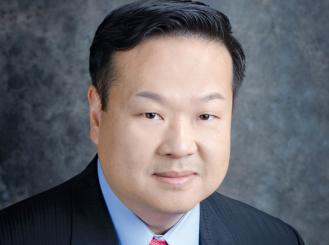Apr 24, 2014
By Edward S. Kim, MD, Levine Cancer Institute, Carolinas HealthCare System
As I reflect on the hundreds of fellows and trainees I have interacted withover the past 12+ years, the diversity of their perspectives on career development is fascinating and sobering at thesame time. Many were unsure whether they wanted to pursue an academic, private practice, or industry career. Many felt pressured to choose during their fellowship to be either a physician-scientist, a translational-clinical scientist, or an educator. Many just wanted to learn how to treat patients with cancer.
If, as a first-year fellow, you know what you want to do and accomplish in three years, you are way ahead of the game. If you are still making up your mind, you can take steps to maximize the number of opportunities available to you using the checklists below. Many fellows change their career paths based on their experiences (positive or negative), and end up doing something completely unexpected. It is wise to keep an open mind and pursue your professional development with an eye toward career flexibility.
MODERN ONCOLOGY CAREERS HAVE POROUS EDGES—FOCUS ON FUNDAMENTAL SKILLS
The lines between academic, community practice, and industry careers are becoming blurred. Community practitioners can conduct and participate in clinical research. Academic-based oncologists can be very hands-on with patient care. At the Levine Cancer Institute, part of the CarolinasHealthCare System, our doctors are community-based but are also writing investigator-initiated studies, treating patients on pathways, promoting trial enrollment and specimen collection, and publishing manuscripts.
Make yourself an enticing employee across career paths by developing your fundamental skills. The ability to write protocols, analyze data, and write manuscripts are desired qualities, not only in the academic setting but also in the community practice setting. Even if you don’t initially envision yourself as an academic researcher, consider building your curriculum vitae (CV) for this role, in the event that you become interested in research and academia later in your training or career. Even if your goal is to work in community practice, you can develop skills by pursuing academic projects during training that will help you create the best possible CV for the professional opportunities you desire.
Challenge yourself to acquire as many fundamental professional skills as you can:
- Write a book chapter or review article. Know how to use referencing software.
- Generate a scientific question and write a clinical protocol. There are avariety of workshops that can help you to develop your idea.
- Analyze data by preparing an abstract for a conference. Get familiar with statistics. You don’t have to be a statistician, but you should know the basics.
- Interact with scientists doing different types of work (i.e., laboratory and translational scientists).
- Work with colleagues on committees and non–research-related projects. Show your interest in other areas.
- Prepare a grant application. You don’t have to start out with a R01 grant; Conquer Cancer Foundation of ASCO Young Investigator Awards are a great mechanism for learning the process and building your writing skills. Find someone at your institution who has submitted one and ask for help.
- Be well-versed in the basics of the field. You don’t necessarily need to know the best mouse models or the ten most common cell lines in cancer, if that’s not relevant to your pursuits, but you should be familiar with fundamental concepts. If you don’t know what “NGS” stands for or what “biomarker” means, you will be in trouble.
The ability to lead and manage projects while meeting deadlines is a highly valued skill in any professional setting. If your training doesn’t include formal leadership and management instruction, you can use your own projects to develop and demonstrate this fundamental skill:
- Designate a finite endpoint to your project.
- Verify that you have the resources (staffing, equipment) necessary to complete your project before you begin. This is particularly important for laboratory-based physician-scientists, who need assistance managing/organizing a lab and its materials.
- Complete your project tasks on time. If you have trouble finding time to do the extra work that is required to be successful in academic endeavors, then it is not in your heart. Academic endeavors are pursued from 9:00 PM to 2:00 AM.
- Follow up with tasks that are delegated to ancillary staff. Don’t leave the responsibility of managing your project to someone else.
DON’T WAIT UNTIL YOUR THIRD YEAR—START BUILDING YOUR CV NOW
Remember that you do not have three years to prepare your CV: you will be looking for a job in the fall of your third year of fellowship. By then, it is too late to be submitting projects for publications or meetings and definitely too late for those projects to have a high impact on your CV. You need to start on these tasks, ideally, in your first or second year.
The best way to maximize your CV is to focus on things you can control:
- Make sure you can finish your project (including abstract submission to a meeting) before the start of the third year of your fellowship. Then, finish your projects. That means final draft.
- Submit your manuscripts. It’s theonly way to demonstrate that you can carry a project or study to completion. Don’t ever put “manuscript in progress” or “in preparation” on your CV. We all know what that means.
- Highlight your accomplishments and don’t sell yourself short. I am still amazed when I look at an applicant’s CV and find a truly nice project or publication buried within the text.
- Don’t feel constrained by the categorieson a CV template. CVs should be somewhat unique and should highlight your biggest accomplishments early on.
- Show you are a team player, but also have an idea of what you want to accomplish individually in the potential job.
A CV that demonstrates your fundamental skills, your leadership abilities, and your accomplishments will greatly enhance your chances of career success, regardless of the career path you ultimately choose.


